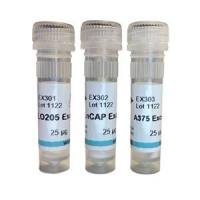Exosomes
互联网
360
Exosomes are small natural membrane vesicles released by a wide variety of cell types into the extracellular compartment by exocytosis. The biological functions of exosomes are only slowly unveiled, but it is clear that they serve to remove unnecessary cellular proteins (e.g., during reticulocyte maturation) and act as intercellular messengers because they fuse easily with the membranes of neighboring cells, delivering membrane and cytoplasmic proteins from one cell to another. Recent findings suggests that cell-derived vesicles (exosomes are also named membranous vesicles or microvesicles) could also induce immune tolerance, suppression of natural killer cell function, T cell apoptosis, or metastasis. For example, by secreting exosomes, tumors may be able to accomplish the loss of those antigens that may be immunogenic and capable of signaling to immune cells as well as inducing dysfunction or death of immune effector cells. On the other hand, dendritic cell-derived exosomes have the potential to be an attractive powerful immunotherapeutic tool combining the antitumor activity of dendritic cells with the advantages of a cell-free vehicle. Although the full understanding of the significance of exosomes requires additional studies, these membrane vesicles could become a new important component in orchestrating responses between cells.








